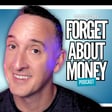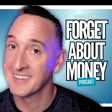
📉 The Perfect Withdrawal Strategy for Early Retirement, Inner Voices, and Conspiracy Theories!🕵️♂️
🛠️ What does it take to master the perfect Early Retirement Withdrawal Strategy? In this episode, we talk tax-efficient withdrawals, bridging the "gap years," and the best tactics to optimize Social Security—all with a fun twist of inner monologues and conspiracy theories!
Watch and Subscribe on YouTube
🌟 Whether you’re navigating the complexities of early retirement or seeking peace of mind about accessing your funds, this episode is packed with actionable insights and lighthearted moments.
In this episode, we discuss:
1️⃣ Strategic Withdrawals: How to optimize taxable, traditional, and Roth accounts for retirement.
2️⃣ Managing Gap Years: Tactics for the time between early retirement and age 59½.
3️⃣ Tax-Efficient Plans: Capitalizing on Roth conversions, taxable accounts, and ACA planning.
4️⃣ Required Minimum Distributions (RMDs): Simplifying strategies to minimize tax burdens.
5️⃣ Social Security Optimization: When to claim benefits for long-term stability.
6️⃣ Peace of Mind: Building a withdrawal plan that works for your lifestyle.
7️⃣ Conspiracy Theories and Monologues: Ending with a laugh and thought-provoking reflections.
🔗 Sean’s Links:
🤔 Accessing Retirement Accounts Prior to Age 59 ½
🔗 David’s Links:
💡 The Perfect Passive Portfolio for Early Retirement
🚀 Secret IRS Rule 72(t) Explained
🍏 Forget About Money on Apple Podcasts
🎧 Forget About Money on Spotify
#retirement #financialindependence #tax #seanmullaney
🎧 Listen & Subscribe: Join us for more episodes about financial independence, retirement strategies, and lifestyle design. Don’t forget to hit subscribe and turn on the bell 🔔 for updates!
📜 Disclaimer: The discussion is intended to be for general educational purposes and is not tax, legal, or investment advice for any individual. David and the Forget About Money podcast do not endorse Sean Mullaney, Mullaney Financial & Tax, Inc., and their services.

